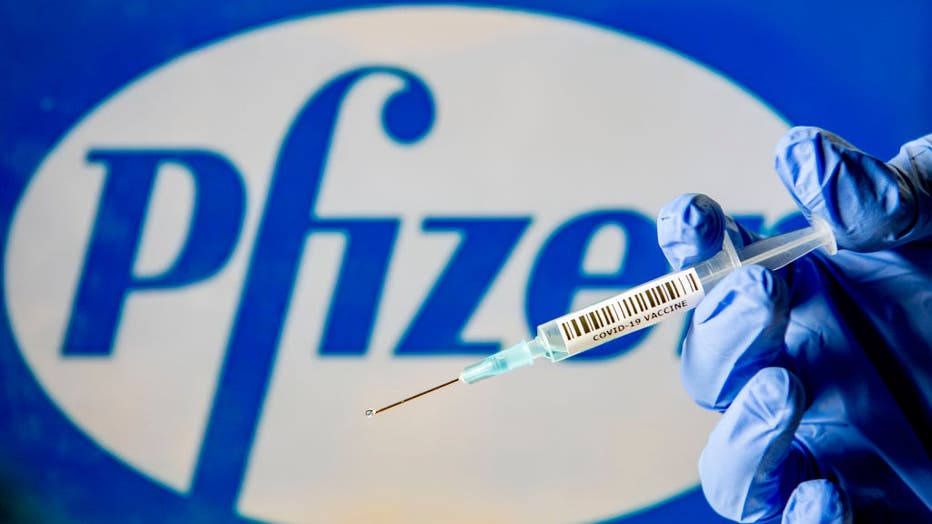Some Houstonians remain skeptical about COVID-19 vaccine

Some in Houston skeptical of COVID-19 vaccine
A small group gathered on Houston streets holding signs against masks, COVID closures, and new COVID-19 vaccines.
HOUSTON - While many Americans anxiously wait to get a COVID-19 vaccine, some remain skeptical of the shot.
Over the weekend, a small group gathered on Houston streets holding signs against masks, COVID closures, and new COVID-19 vaccines.
SIGN UP FOR FOX 26 HOUSTON EMAIL ALERTS
“We should have a choice when it comes to the vaccine,” said Derrick Broze.
Broze, a 2019 mayoral candidate for the City of Houston, organized Saturday’s rally. According to Broze, he isn’t likely to get the new Coronavirus shot.

A man holds a syringe with a fake COVID-19 vaccine with the Pfizer logo in the background. (Photo Illustration by Robin Utrecht/SOPA Images/LightRocket via Getty Images)
“I don’t plan to get it,” said Broze. “I think in a wider spectrum; I think there are people concerned about some of the side effects we’re seeing already. Or, just the fact that we have no long-term studies.”
On Facebook Sunday, we asked followers if they plan to get the COVID-19 vaccine when it becomes available to the general public.
RELATED: COVID-19 testing in greater Houston area: how and where
The answers were split. One person commented saying “I’d take it right now with no doubts.”
However, a second person said, “I trust and believe in science, and the science behind this mess is sketchy at best.”
In an interview, we asked Dr. Peter Hotez about the safety involving these new COVID-19 vaccines. Dr. Hotez is the Dean of the National School of Tropical Medicine at Baylor College of Medicine.
“We’ve been testing it in 44,000 individuals for several months,” said Dr. Hotez. “If offered that Pfizer vaccine, I will take it tomorrow.
RELATED: First coronavirus vaccines expected to arrive in Houston early Sunday
Actually, I would take any of the vaccines that are released by the FDA. I have that level of confidence.” A new Gallup poll suggests almost 40% of Americans don’t want to take the new COVID-19 vaccine.
“Many people, they look at the situation, they look at the CDC numbers, the look at the World Health Organization numbers, and they don’t see why it’s necessary,” said Broze.
“We’ve got to step up our communication,” said Dr. Hotez. “We’ve got to figure out a way to take out the anti-vaccine confederacy or empire. If we do those things, I think we’ll see a much better acceptance rate.”

